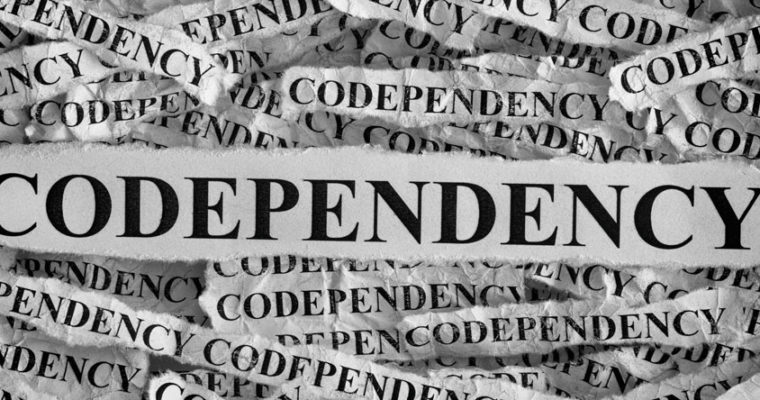The actual term ‘codependency’ came out of the addiction recovery movement to describe the coping and enabling behaviors of the family members of addicts. Therapists then began to see these same behaviors in their clients that were not in relationships with addicts, but rather had dysfunctional family systems or were raised in them. I was introduced to the term ‘codependency’ on my 3rd or 4th visit with a new therapist, when she asked me,
“Since you’ve told me that you are an adult child of an alcoholic, along with some other things that you have shared with me in regards to the relationships in your family system, I wanted to know if you were familiar with the term ‘codependency’?”
I told her that I had heard the term before, but wasn’t really sure what it meant. I thought it was something that drug addicts or alcoholics themselves suffered from. That day she enlightened me that codependency is what the family members of addicts suffer from, and that I was, most certainly, a codependent.
She sent me home with a book, “Codependent No More‘ by Melody Beattie. I think I devoured it in a couple of days, highlighting something on just about every page. I saw myself so clearly in that book. My therapist was right. I was a raging codependent and something had to change.
When I started to gain awareness of who I was and that this codependency was the motivator and drive behind most of my decisions, it felt like waking up from a cult! I had been conditioned since I was a child to think a certain way, act a certain way, REACT in a certain way. Having an alcoholic for a mother caused me to overcompensate for her, and that need to overcompensate (i.e. control) spilled over into all of my other relationships as well.
When reading the book, almost ALL of codependency characteristics listed were definitely true about me. I was astonished at how my early childhood abuse had shaped these behaviors in me, creating so much anxiety and inability to manage my life. Some of the descriptors that I most identified with were:
ABSORBED WITH OTHER PEOPLE & THEIR PROBLEMS
I was the ‘fix-it’ person! I loved to dispense advice and help people solve their problems. The downside to that was that I would get very frustrated when my advice was unheeded.
afraid to make mistakes
I was my own worst critic. If I made even the smallest mistake, I would curse at myself with very demeaning self talk. My need for perfection resulted in very unrealistic expectations for myself.
I was angry, tired & felt unappreciated
I worked very hard to do everything. I was a super-mom. I didn’t ask for help when I should have. Also, when I went above and beyond for people and didn’t get the response I desired, I got angry.
I had an inability to say 'no'
Codependents have a problem telling people no. If someone asked me for a favor, I never considered whether I had the time or resources to do it, I just felt it was my Christian duty to always say yes.
I felt responsible for other people's feelings
I let other people’s moods control my emotions, and then I would try to control THEIR feelings to alleviate MY anxiety. I had an inability to just let someone be angry or upset.
I was a victim of emotional, physical & sexual abuse
I am an adult child of an alcoholic, along with being a victim of emotional and sexual abuse. Codependency is very common for people who were abused in childhood.
how to break the codependent cycle
There is no easy way to break the cycle. For each individual it is a unique set of circumstances that caused them to develop codependent behaviors. Once you discover what those root causes are, then you can begin to deal with the current behaviors and how to stop the codependent cycle. I first had to do some difficult work regarding my mother’s alcoholism and the fact that she ‘parentified’ me into becoming a caretaker. I can distinctly remember memorizing her drivers license and social security numbers so that if we were somewhere where she needed them, I was ready and available to provide for her. To this day, I still remember those numbers! I honestly don’t think my mother ever knew those identifying facts about me.
Another area in which I had to do a lot of work was in the area of feelings, more specifically, learning to feel my own feelings. I didn’t necessarily have a difficult time expressing myself – mainly out of frustration – but more difficulty in really experiencing and ‘sitting’ in my feelings, especially the painful ones. My work in a sexual abuse support group helped me immensely in this area.
I plan to write extensively about codependency because it would be impossible to chronicle my (ongoing) recovery in a single post. The first thing I did when I realized I was codependent was educate myself about it. I read articles online, personal blogs, books and watched YouTube videos. I believe that educating yourself is the most important thing you can do to empower your recovery. I will list some other resources below that helped me at the beginning of my recovery.





